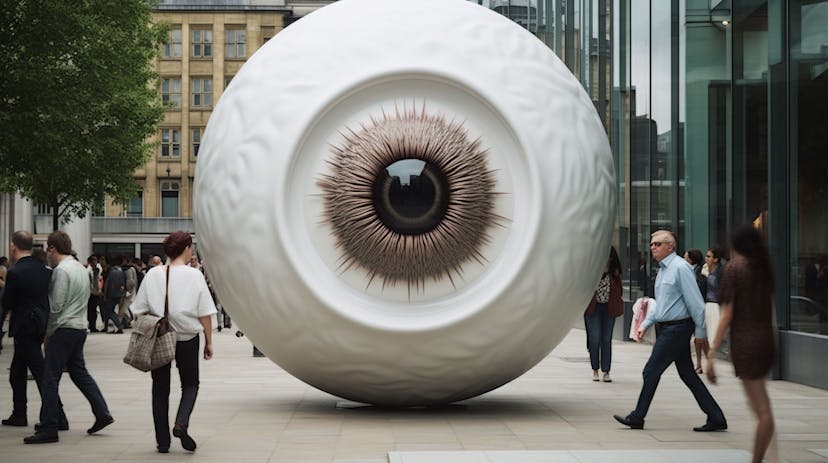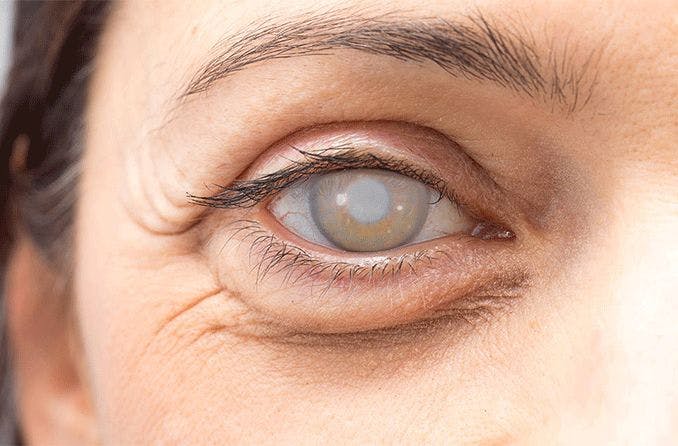
The recovery period after cataract surgery is usually short, with no complications. However, this time is extremely important for the healing process and you should use it to rest up so as not to irritate your eyes.
We’ve put together this article on the dos and don’ts after cataract surgery to help you be careful during your recovery period, helping to achieve the best vision results possible. Life after cataract surgery will be enjoyable, easier and fun!
What Can I Do After Cataract Surgery?
Immediately after surgery, we will give you eye drops to help with the healing of your eyes. You must follow the instructions we give you and apply the correct amount of drops for the right amount of time.
You can wash and shower normally, but you must take extra caution with your eyes. It’s best to avoid getting shampoo or soap in your eyes. If you do, it will sting, but no damage will be done.
Wear your shield at night during the first week of healing. The shield stops you from rubbing your eyes accidentally during the night.
After cataract surgery, we recommend that you take it easy, at least for the first few days. We understand that life can be hectic; however, when it comes to your eyes, you must follow your surgeon’s advice by making sure you are taking it easy and resting.
Your eyes should look and feel almost normal the day after, but if they do become red or painful, you should contact your surgeon as soon as possible.
What Can’t I Do After Cataract Surgery?
Immediately after cataract surgery, your vision may be blurred. We strongly recommend that you do not drive on the day of your surgery and In the following days until you feel completely comfortable and your vision has cleared.
Additionally, don’t do any heavy lifting or strenuous work for at least ten days.
During your healing period, your eyes will be very sensitive, and it is crucial to make sure nothing is touching them. We strongly advise that you do not rub or poke your eye as this can affect the way your eye heals.
It’s also important to remember that some patients experience watery eyes after cataract surgery, however, this is nothing to worry about. Typically, eye-watering
stops within 24 hours.
Instructions From Your Cataract Surgeon
| Post-Cataract Surgery Instructions |
|---|
| 1. Rest and Relaxation: Take it easy for the rest of the day after the surgery. Avoid strenuous activities and heavy lifting. |
| 2. Eye Shield or Patch: Wear the eye shield or patch to protect the operated eye from accidental bumps or pressure. |
| 3. Prescribed Medications: Use prescribed eye drops or medications. These may include antibiotics or anti-inflammatory drops |
| 4. Avoid Rubbing or Touching the Eye: Do not touch or rub the operated eye, as this can disrupt the healing process. |
| 5. Wearing Sunglasses: Wearing sunglasses will help to protect the eye from bright lights and UV rays. |
| 6. Avoiding Water and Dust Exposure: Avoid getting water, soap, shampoo, or dust directly into the operated eye. |
| 7. Follow-Up Appointments: Schedule follow-up appointments to monitor the healing process and remove any sutures if needed. |
| 8. Driving Restrictions: Do not drive immediately after the surgery. |
| 9. Gradual Resumption of Activities: Follow time frames and advice for when it is safe to resume normal activities like reading, watching TV, and using a computer. |
| 10. Dietary Considerations: Follow any specific dietary instructions, if applicable, especially if you are on certain medications. |
| 11. Reporting Unusual Symptoms: Contact the surgeon immediately if they experience severe pain, sudden loss of vision, increasing redness, or any other concerning symptoms |
| 12. Post-Operative Care for the Unoperated Eye: If cataract surgery is planned for the other eye, follow instructions for care and any pre-operative preparations. |
Treatment For Watery Eyes After Cataract Surgery
Watery eyes after cataract surgery are a common side effect and usually not a cause for concern. This occurs as the eye heals from the surgery and may be due to temporary irritation, inflammation, or dry eye syndrome, which can paradoxically cause excessive tearing. To alleviate watery eyes, it's important to follow the post-operative care instructions provided by your ophthalmologist. This often includes using prescribed eye drops, which may contain anti-inflammatory or lubricating agents to reduce irritation and promote healing. Keeping the eye clean and avoiding rubbing it can also help prevent further irritation and reduce excessive tearing.
If the watery eyes persist or are accompanied by other symptoms like pain, redness, or vision changes, it's essential to consult your eye doctor promptly. In some cases, persistent watery eyes may be due to blocked tear ducts or other underlying issues that might require further treatment. Your cataract surgeon might recommend additional therapies, such as warm compresses, massaging the tear ducts, or even minor procedures to address the blockage. Ensuring regular follow-up appointments with your ophthalmologist will help monitor your recovery and address any ongoing concerns, ensuring the best possible outcome after cataract surgery.
Support After Cataract Surgery With My-iClinic
To ensure that you have the best recovery possible, please make sure to follow the instructions your surgeon has given you. These are extremely important to follow as they will ensure your eyes heal comfortably after your surgery.
We hope you’ve found this article about the dos and don’ts after cataract surgery informative and insightful. If you have any questions, contact us today or book a consultation to begin your journey into a cataract-free life.
Find out more by Speaking to our team









